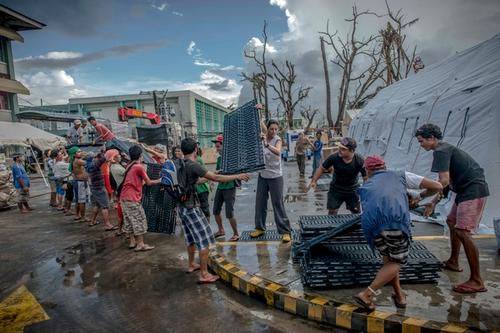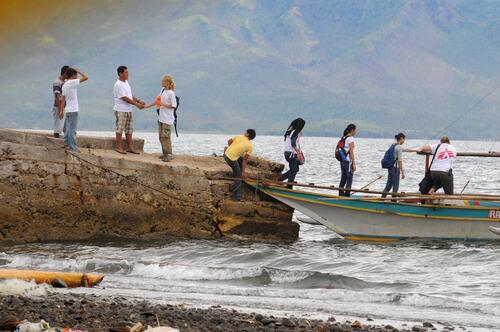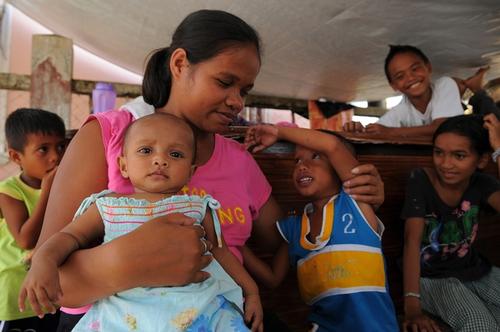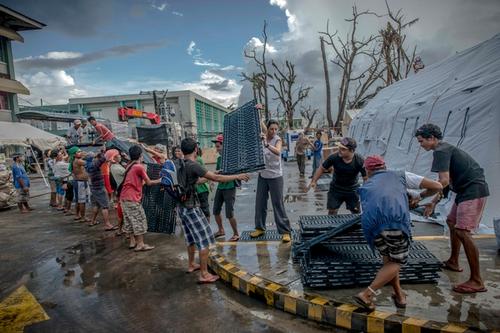House swept away
When the typhoon struck Tacloban, in the Philippines, Norma and her family ran out of their house. This is probably what saved them. More than the strong winds, it was the wave that followed that caused most havoc. “The water rose to the height of three men,” Norma says, stretching her arm to illustrate. “We remained clinging to a fallen coconut tree. Our house? Swept away by the waters.” Norma lost her youngest daughter to the typhoon. Despite the tragedy, she still manages a smile.
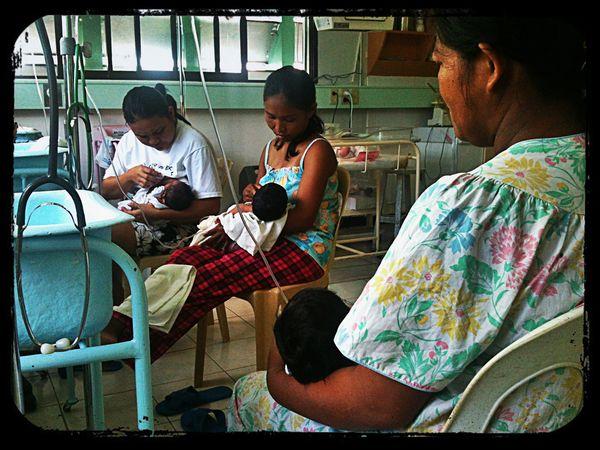
Breech delivery
Twenty-six-year-old Norma, who was heavily pregnant, had gone into labour when she was transferred from her local health centre in the village of Julieta to MSF’s inflatable hospital in Tacloban. It was a breech delivery, with the baby coming out feet-first, which can be risky.
“She was already in labour,” says MSF paediatrician Daniel Martinez Garcia. “We could see the baby’s feet, and it was too late to do a caesarean. This kind of delivery is very complicated. But we’d only been working in the hospital for a few days – there was still no electricity, no water, and we didn’t have all the equipment we needed.”
Active and healthy baby
As Norma’s labour progressed, the baby’s head got stuck, putting it in danger of asphyxiation and cardiac and respiratory arrest. “After a long resuscitation, the baby regained consciousness, but I was afraid there might be significant neurological damage,” says Martinez Garcia. “But, fortunately, today she’s fine – she is active and healthy.” Norma is eager to go home, to the house rebuilt by her family since she has been in hospital. But she knows that her baby needs to be monitored for several more days.
Local health system unable to cope
In the neonatal unit, set up by MSF in the aftermath of the typhoon, there are five newborn babies, all born prematurely and with low birth weight. It is the first time that MSF has set up a service of this kind in an initial emergency response, but with the local health system so badly affected, it was clear that there was a need for it. “In this particular context, the main needs are for paediatrics, general consultations and maternity care, more than for trauma injuries,” says Martinez Garcia .
Norma, a radiant smile on her face, admires her new baby. “She looks a lot like her big sister – the child we lost,” she says. “Now she is the only daughter of the family. I will call her Hope – Kriziah Hope – because she survived the typhoon.”



